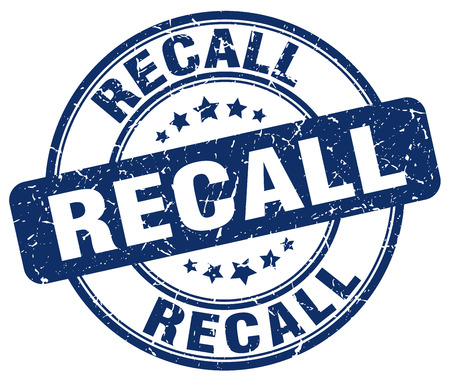Takata Air Bag Replacements Taking Too Long
January 9, 2017 | Category: Personal Injury, Unsafe Vehicles | ShareAccording to the U.S. government, automakers are not moving fast enough to fix the 42 million vehicles which were recalled because of potentially deadly Takata air bag inflators. The NHTSA (National Highway Traffic Safety Administration) officials released a schedule the beginning of December 2016 of further recalls and said it would require all 19 companies involved to submit plans to reach more owners.
What exactly is the problem with the air bags?
 The NHTSA says that some Takata frontal air bags on the driver’s or passenger’s sides could deploy explosively and injure, or even kill, vehicle occupants. These air bags were mostly installed in vehicles from model years 2002 through 2015. NHTSA calls this “the largest and most complex safety recall in U.S. history.”
The NHTSA says that some Takata frontal air bags on the driver’s or passenger’s sides could deploy explosively and injure, or even kill, vehicle occupants. These air bags were mostly installed in vehicles from model years 2002 through 2015. NHTSA calls this “the largest and most complex safety recall in U.S. history.”
The center of the problem lies with the air bag’s inflator which is a metal cartridge loaded with propellant wafers, which in some cases has ignited with explosive force. Should the inflator housing rupture in a crash, then metal shards from the air bag can spray throughout the passenger cabin.
NHTSA has determined the root cause of the problem is air bags that use ammonium nitrate-based propellant without a chemical drying agent. As NHTSA mentioned before, environmental moisture, high temperatures, and age are associated with the defect which can cause improperly inflated air bags and even shrapnel to be sent into the occupant. To date, there have been 11 deaths and approximately 180 injuries due to this problem in the U.S.
Why is it taking so long to get the air bags fixed?
Fortune, the LA Times, and Car and Driver reported that the causes were:
- Severe shortage of parts to fix the problem.
The high number of recalls means the new Takata part that fixes the problem is in short supply. Takata has ramped up production, but experts say it could take the company up to two years to make enough parts to fix all the affected cars. Manufacturers, other than Takata, are now making replacement air bags for many of the recalled vehicles, and Takata is even using competitors’ products in half of its replacement kits.
- Regulators have set a schedule to determine when vehicles get their inflators replaced.
Regulators have set up a complicated pecking order on who gets their air bags replaced first. The four priority groups are based on the vehicle’s age, bag failure rate and the amount of time it has spent in “areas of high absolute humidity” as this makes the air bags more likely to fail. Federal regulators have set a schedule for completion of air bag replacements ranging from December 31, 2016 through to December 31, of 2019.
- Vehicles continue to be added to the recall list.
The latest update from the NHTSA on December 12, 2016 reports that repairs will not be finished until at least September 2020. Additionally, another round of cars, including Tesla products, supercars from Ferrari and McLaren, and additional model years of previously recalled models have been added to the master list of vehicles plagued by the defective Takata inflators. By 2020, NHTSA expects there to be 64 million Takata inflators under recall.
What are consumers to do?
Safercar.org says that the nature of the problem with the Takata inflators is so dangerous that vehicle owners cannot afford to ignore the recall notices. The sooner you contact your dealer, the sooner you can get on the repair list. You can check the NHTSA’s running tally of affected vehicles at Takata Recall List. Enter your VIN number (Vehicle Identification Number) to see if your vehicle is on the recall list.
Drivers who find themselves waiting for a replacement part should ask dealers for a loaner car, though regulators said they did not have the authority to require automakers to provide them.
“If you have been injured in a vehicle that has been the subject of a recall, contact the experienced attorneys at Spivey Law Firm, Personal Injury Attorneys, P.A. to determine your rights,” said Fort Myers Unsafe Vehicles Attorney, Randall Spivey.
Fort Myers Unsafe Vehicles Attorney, Randall L. Spivey is a Board Certified Trial Attorney – the highest recognition for competence bestowed by the Florida Bar and a distinction earned by just one (1%) percent of Florida attorneys. He has handled over 2,000 personal injury and wrongful death cases throughout Florida. For a free and confidential consultation to discuss your legal rights, contact the Spivey Law Firm, Personal Injury Attorneys, P.A., in Lee County at 239.337.7483 or toll free at 1.888.477.4839, or by email to Randall@SpiveyLaw.com. Visit SpiveyLaw.com for more information. You can contact Spivey Law Firm, Personal Injury Attorneys, P.A.in Charlotte County at 941.764.7748 and in Collier County 239.793.7748.

